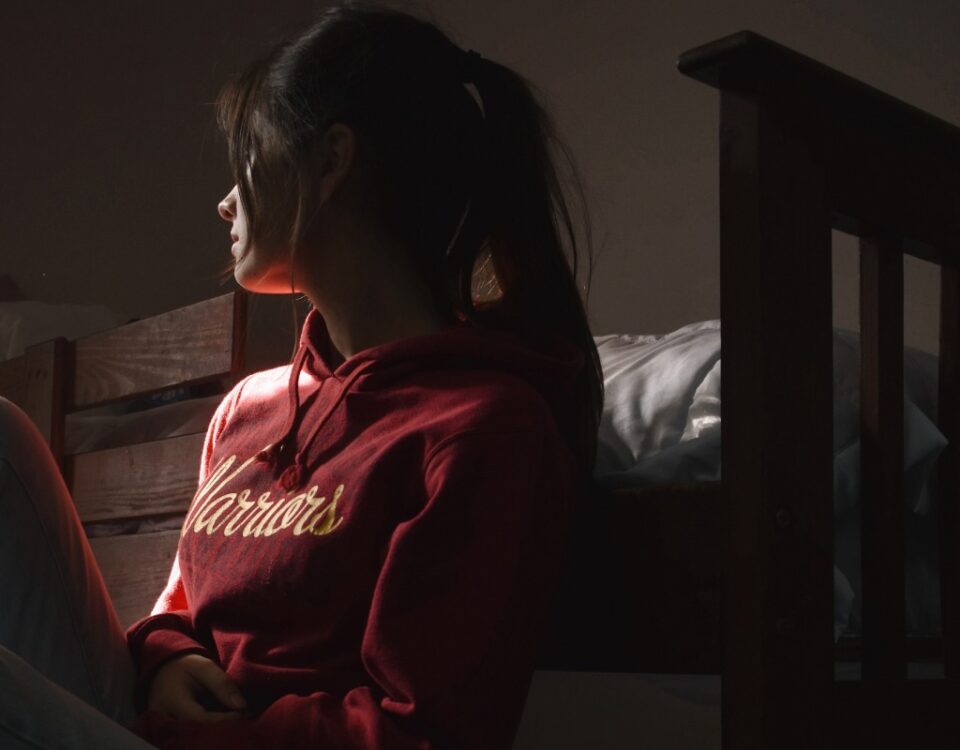How Working From Home Can Impact One’s Mental Health
February 1, 2022The Different Types of Anxiety
February 8, 2022As another year of the COVID-19 pandemic goes on, change and stress are inevitable. Over the past two years, many adjustments have been made causing a completely different way of life. You may still be grieving the experiences you have missed out on in recent years due to the pandemic. These may include weddings, funerals, and graduations. It is possible that you may be mourning the loss of loved ones.
Even though hope is on the horizon with the accessibility of innovative vaccines, this is still a very stressful and often confusing era. Such stress can lead to mental health concerns like anxiety and depression, causing substance use to become a viable method of coping.
Knowing how to identify the signs of COVID-19 related stress and healthy coping mechanisms can save a life.
Identifying the Signs of COVID-19 Related Stress
Stress caused by the COVID-19 pandemic may be affecting your mental and physical health more than you realize. Some signs to look out for include:
- Feelings of hopelessness, fear, anxiety, anger, and frustration
- Trouble sleeping or nightmares
- Low energy or a lack of motivation
- Difficulty focusing or making decisions
- Headaches, body pains, stomach problems, or skin rashes
- Worsening mental health problems
- Increased use of substances like tobacco, alcohol, or other drugs
If you are experiencing any of these symptoms of stress, you are not alone. Many people across the country are experiencing the same concerns that you are.
Dealing With COVID-19 Related Stress in Healthy Ways
Shut Down Electronic Devices
While it is understandable to want to stay reasonably informed about changing regulations and events, sometimes the onslaught of information can become too much. If you begin to feel overwhelmed or stressed out, it might be time to turn off the television, shut down your phone, and take a break from reading or watching the news.
Sometimes going on a news or social media detox for a few days can be beneficial to gaining clarity and a sense of peace. If you do not think you can go that long without checking on current trends, consider scheduling designated time slots throughout the day and limit use outside of those allotted timeframes.
Refocus and Rechannel
It can be easy to dwell upon the unknown, especially while navigating unfamiliar territory. In order to avoid spiraling, it is critical to focus only on what you can control. Some examples include:
- Washing your hands frequently
- Wearing a mask while out in public
- Staying home if you feel sick
- Make sure that COVID-19 is not the main focus of every conversation
- Disconnect from social media if it is adding to your stress
- Keep in touch with family and friends, even if the only possible way of doing so is over the phone or on Zoom
Log Your Thoughts and Plan Ahead
If you have concerns regarding the way COVID-19 may affect your future, consider jotting them down on a piece of paper. After that, focus on creating a practical plan for scenarios in the event something happens.
For example, if you do become sick and have to self-quarantine, select a friend or family member who will be able to drop off groceries for you. Additionally, if someone within your household becomes sick, consider which floor or room of your home they will be able to self-isolate. Having concrete plans like these can help decrease or ease fears and anxiety and channel them into positivity and confidence.
Focus On Wellness
Making sure you are doing everything in your power to take care of your physical health during this time is key. Be sure to eat well-balanced meals and get plenty of exercise throughout the day. When you take care of your health, you increase your ability to combat feelings of anxiety and depression. Additionally, you will be better equipped to fight off COVID-19 in the event that you do become sick.
Find New Coping Skills
Even though it may seem all too easy to turn to a casual drink or cigarette to help soothe your COVID-19 related anxieties, engaging in substance use can actually cause your mental health to worsen significantly.
Substance abuse across the United States has dramatically increased since the beginning of the pandemic. While you may be able to control your level of substance use initially, it can quickly spiral out of control. There are far healthier and more effective ways to soothe anxiety regarding COVID-19, such as taking a walk, spending time in nature, practicing yoga, journaling, or speaking with a therapist.
The COVID-19 pandemic has dramatically impacted the way we think and feel over the past two years. We have had to adjust to many changes and regulations. Regulations are constantly changing and the news can become nerve-racking and overwhelming. If you find yourself dealing with increased levels of stress, you are not alone; many people are struggling with COVID-19 related anxiety. It is crucial to be able to cope with this kind of stress in healthy ways, without turning to substance use. One way of doing this is to take a break from reading or watching the news when it becomes too overwhelming. It can also be helpful to come up with concrete plans while taking care of your health through diet and frequent exercise. Additionally, ensure that the topic of conversation doesn’t revolve around COVID-19. If you are struggling with mental health or substance, our team at The Kimberly Center can help. Call (855) 452-3683 to learn more.



